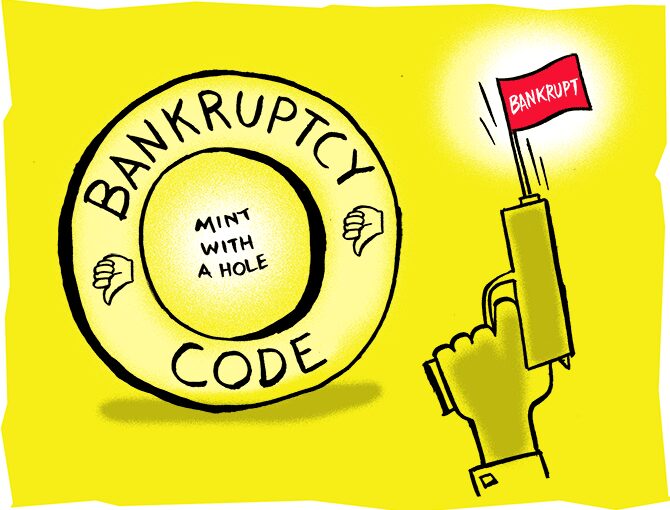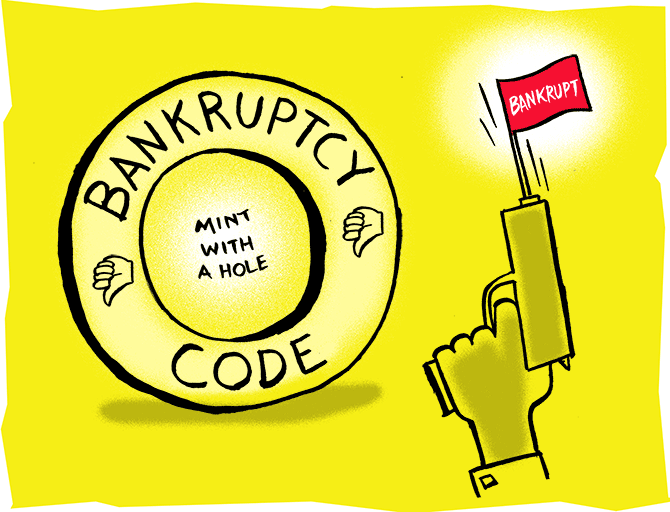From almost 60 per cent as of December 2019, the share of liquidations in the mode of closure of total Insolvency and Bankruptcy Code (IBC) cases came down to 44 per cent till September 2023, data by the Insolvency and Bankruptcy Board of India (IBBI) shows.
Experts say the decreasing trend in liquidations under the IBC in India can be largely attributed to the initial economic conditions of companies entering the Corporate Insolvency Resolution Process (CIRP).
IBC experts also say the trend shows a certain stabilisation in IBC with the Code now rid of legacy bankruptcy issues.
Experts pointed out that a significant number of the companies that went into IBC had their asset values heavily eroded before entering CIRP, with assets often valued at just around 7 per cent of the outstanding debt.
“This pre-existing deterioration made restructuring or revival unfeasible, leading to liquidation…This highlights the importance of timely and efficient resolution mechanisms in maximising stakeholder value and underlines the evolving nature of insolvency resolution in India,” said Sonam Chandwani, managing partner, KS Legal & Associates.
IBC is a resolution-oriented law where liquidation is considered as a last resort.
“If the resolution stage fails, it is natural that it won’t fetch much value during liquidation.
“If there is value, there would have been suitors during the resolution stage itself,” said Rakesh Sahoo, Partner, IndiaLaw LLP.
As of September 2021, September 2022 and September 2023, around 45 per cent of the total cases admitted into insolvency ended in liquidation.
In contrast, the proportion of cases resolved by way of approval of resolution plans in the same year has been in the range of 10 to 14 per cent.
The remaining cases were closed by way of settlement, appeal or withdrawal.
“The reduction in liquidations may be attributed to the measures being undertaken by the legislature to resolve various bottlenecks and ensure that CIRP of a corporate debtor is completed in an effective and time-bound manner,” said Kumar Saurabh Singh, partner, Khaitan & Co.
Experts, however, cautioned that this should not be taken as the conclusive sign that liquidations in IBC would continue to come down unless more steps are taken to ensure timely resolution, including avoiding delays at NCLTs.
Compared to the earlier regime of the Sick Industrial Companies Act (SICA), Board for Industrial and Financial Reconstruction and the Securitization and Reconstruction of Financial Assets and Enforcement of Security Interest Act (SARFAESI), stressed companies have fared better under the IBC.
For instance, a report by PwC said total recoveries under the SARFAESI Act in 2021-22 were Rs 27,349 crore while in IBC the amount recovered in the same period was Rs 47,421 crore.
“The primary reason behind this is the change in the outlook of lenders that has been brought about by the IBC.
“While earlier the focus was on the recovery of debt, the focus has now been shifted to the resolution of insolvency of the borrower in the most efficient and transparent manner,” said Amrita Panda, advocate-on-record, Supreme Court.
Source: Read Full Article

